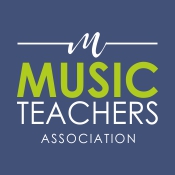
by Dr Steven Berryman, Curriculum Lead, Music Teachers’ Association
Any attention at a policy level for a subject that has been considered in decline is welcome, and the publication of the Model Music Curriculum presents the beginning of some positive steps to propel the classroom music conversation forward. Its thorough consultation, and slower pace due to the challenges of the present time, have resulted in something that will land well for many. For others, there will be some cognitive dissonance (rightly so) and they’ll be fearful of what non-statutory guidance represents. I would implore us all to keep the conversation going; in some respects, it is the continuation of a healthy history of academic, political and policy discussions around what, how and why we teach music.
Schools are considering their curriculum with increased intensity, fuelled by the focus on curriculum intent by those that hold schools to account. Accountability aside, what we teach is hugely exciting for a teacher. You get to find content then brings you joy (reminds you of why you fell in love with the subject) and what you hope will bring that same buzz for your students. The energy, vibrancy, and proliferation of the curriculum conversations in classrooms, departments and on social media has been a joy to see. Teachers are sharing their resources and thinking with generosity through blog posts, articles, and tweets; a positive of the curriculum focus has been a huge amount of care for ensuring what we provide our students is the genuine best for them. Undoubtedly what one considers ‘best’ for their students will not be the best for others, and this fuels an engaging debate about what should and should not feature in a curriculum.
‘The MMC takes as its starting point the ambition that every young person should be able to experience music and to make progress. It is founded on the belief that music enriches individual lives as well as a school’s wider community’.
For the full article please visit the CanDoMusic blog here.


